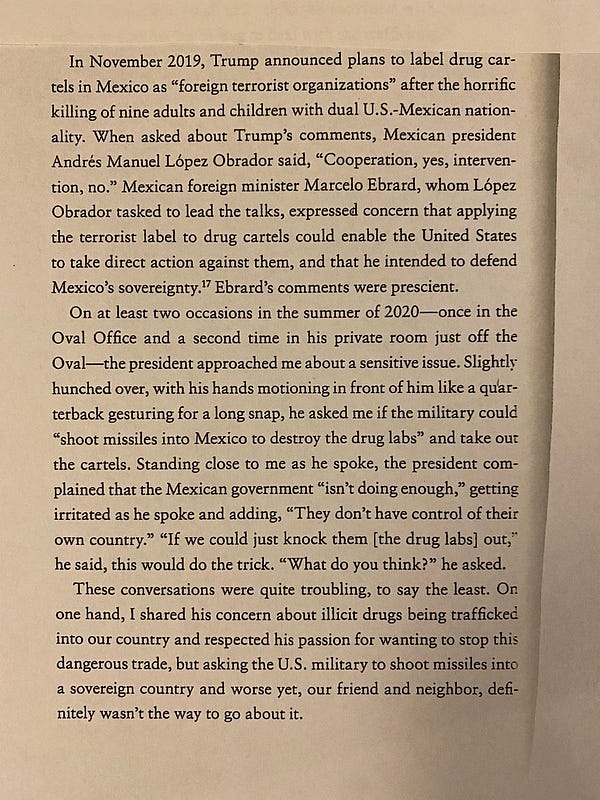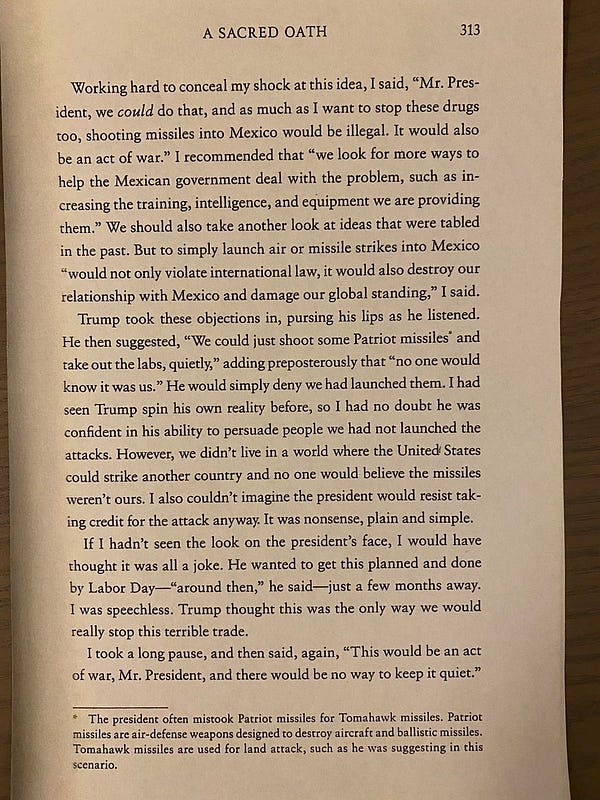While most eyes were on the leaked draft of the Supreme Court decision this week, the Biden administration continued its work to move the country forward, demonstrating that investing in ordinary Americans creates a strong economy.
Since the 1980s, Republicans have insisted that the way to establish strong economic growth is to cut business regulations and taxes in order to free up innovation and capital for investment. Rejecting the system in place since 1933 that used the government to keep the economic playing field level and protect the rights of workers, Republicans argued that the economy worked best when business leaders ran it. Government should support the employers on the supply side of the economy rather than the workers and consumers on the demand side.
In response to those who challenged this "supply-side" economics on the grounds that government deficits would explode as tax receipts fell, Reagan Republicans argued that tax cuts would pay for themselves with economic growth, so Americans could have both lower taxes and continued services. And, although Reagan tripled yearly deficits and nearly tripled the national debt—from $995 billion to $2.9 trillion—the idea that tax cuts paid for themselves by boosting investment in the economy, became gospel on the right. At the same time, supply-side economics never delivered the extra growth it promised.
As soon as he took office, in the midst of the coronavirus pandemic, President Joe Biden rejected traditional supply-side economics and launched a policy that Treasury Secretary Janet Yellen called "modern supply-side economics." Biden's plan, Yellen explained, focuses on "labor supply, human capital, public infrastructure, R&D, and investments in a sustainable environment." Rather than focusing on putting money into the hands of the "demand side" of the economy—consumers—it focuses on developing a strong labor force in a strong democracy to create growth through hard work and innovation.
That system has paid off with the fastest economic recovery since the pandemic of any of the wealthiest liberal democracies that make up the Group of Seven (G7) countries: Canada, France, Germany, Italy, Japan, the United Kingdom, and the United States.
The U.S. job market has bounded back from the depths of the pandemic at an astonishing rate. Today's job report showed that employers added another 428,000 jobs in April. For the past year, the economy has added, on average, more than half a million new jobs a month, for a total of 8.3 million since Biden took office. Unemployment is at a 50-year low at 3.6% (this number counts only those who are unemployed and are actively looking for a job). Since there are currently 1.9 vacancies for every unemployed person, giving workers leverage over employers, wages grew 5.5% in April.
That upward pressure of wages might be part of what is driving soaring inflation. Over the past 12 months, the Personal Consumption Expenditures (PCE) price index, which is a method of measuring how much it costs for an ordinary consumer to buy goods and services, has risen 6.6%. If you take fuel and food out of that index, it's still 5.2%, and the Fed likes inflation to be no more than 2%.
Supply chain issues have also driven up prices, both because of shortages and because the ten shipping companies that dominate the global trade have jacked up prices so astronomically that U.S. importers have asked the U.S. government to intervene (this year container companies will pocket $300 billion in profits, up from $23 billion before the pandemic).
The skyrocketing price of oil, which has translated into soaring gasoline prices, has also driven up prices: the American Automobile Association says the average price of a gallon of gas nationally today is $4.279 a gallon (prices are significantly cheaper in the South than in the West, where in some places they are more than $5.75 a gallon). Higher gas prices drive up the price of everything by increasing the costs of shipping even further.
Global oil production dropped dramatically during the pandemic, with oil-producing nations cutting production by about 10% globally. Producers have been slow to increase production to keep up with the global recovery, not least because they are making record profits. Yesterday, Shell, which is Europe's largest energy company (and which did, in fact, begin its business in the early 19th century importing decorative seashells from Asia to England), reported its largest quarterly profit ever, at $9.1 billion. It said it will use the windfall to buy back shares of the company, increasing the value of the company's stock.
The Biden administration has asked Saudi Arabia to increase production, but the Saudis have resisted that request, joining the rest of the Organization of Petroleum Exporting Countries (OPEC) and their allies, including Russia, in saying global shortages are the West's fault because of their sanctions on Russia. Indeed, the Russian invasion of Ukraine and the subsequent sanctions have badly disrupted oil supplies, driving prices up further.
But there is also a foreign policy story here: Saudi Arabia crown prince Mohammed bin Salman (MBS) was close to the Trump administration and is close to Trump's son-in-law Jared Kushner, with whose new investment firm he has recently invested $2 billion despite Kusher's lack of experience in investing. In contrast, in February 2021, Biden released a U.S. intelligence assessment that MBS had approved the murder of Washington Post columnist Jamal Khashoggi. And while presidents have tended to downplay the idea that the 9/11 hijackers—15 of whom were Saudi out of 19 total—had any connection to the Saudi government, Biden ordered the Federal Bureau of Investigation to declassify documents that suggest there may have been a Saudi spy involved.
It seems unlikely MBS is losing sleep over Biden's popularity sinking as gas prices rise.
The administration has undertaken steps to curb inflation. Although it does not have control over either Chinese supply chains—stressed by a surge in Covid—or the Russian war on Ukraine, there are domestic levers it can use. At the end of March, the administration began releasing a million barrels of oil a day from the Strategic Petroleum Reserve, a policy it expects to continue for 6 months.
To counter Republican claims that the $1.9 trillion American Rescue Plan, which Democrats passed in March 2021 and which jump-started the economy, was a failure because it was so expensive, Biden this week pointed out that increased tax revenues have in fact reduced both the deficit and the national debt, both of which went up significantly under former president Trump. (Both Bill Clinton and Barack Obama also cut budget deficits—Clinton actually produced a surplus—and the Republicans who followed them used those savings for tax cuts.) This year's budget deficit will drop by $1.5 trillion, the biggest decline in a single year, easing inflationary pressures by keeping the government from borrowing.
Today, Biden called for Congress to pass the Bipartisan Innovation Act, which focuses on building goods in the United States to avoid future supply chain crises and would provide new manufacturing jobs in small and medium-sized companies (the country has added 473,000 manufacturing jobs since he took office). It would bring home production that the U.S. has ceded to China and, Biden suggested today, rebuild the Rust Belt. Currently, the House and the Senate are in the process of merging two bills, one passed by each chamber, into a final bill.
"This is a bipartisan bill," Biden told workers at United Performance Metals near Cincinnati, Ohio, accompanied by the state's senators, Democrat Sherrod Brown and Republican Rod Portman. "Senators Brown and Portman are working hard to get it done." "Pass the damn bill and send it to me," he urged. "If we do, it's going to help bring down prices, bring home jobs, and power America's manufacturing comeback."
On Wednesday, Jerome Powell, chair of the Federal Reserve Board, announced an interest rate hike of a half percent, the biggest hike since 2000. Their hope is to cool down the heated economy enough to slow inflation without throwing people out of work.
Stocks rallied immediately after the announcement, with the Dow Jones Industrial Average (one of the indexes for gauging the movement of the stock market) gaining about 900 points. The next day wiped out those gains and more, and today was similarly rocky. It seems the switch from a policy of heating up the economy to cooling it down has made investors jittery.
In other news today, a new book coming out by Mark Esper, former secretary of defense under Trump, reveals that the former president wanted the military to recall to active duty retired General Stan McChrystal and Admiral William H. McRaven in order to court-martial them for disloyalty to him. It also says that Trump wanted to have the U.S. military launch missiles at Mexican drug labs, quoting him as telling Esper that "[w]e could just shoot some Patriot missiles" into our neighbor and ally, Mexico, and no one would know it was the U.S. because Trump could just deny it.
Esper pointed out that such an attack on a sovereign nation would be an act of war.
—
Notes:
https://www.pbs.org/wgbh/commandingheights/shared/minitext/ess_reaganomics.html
https://www.thebalance.com/us-debt-by-president-by-dollar-and-percent-3306296
https://www.politifact.com/factchecks/2022/feb/16/patrick-gaspard/us-economic-growth-exceeds-rivals-and-has-contribu/
https://gasprices.aaa.com/state-gas-price-averages/
https://www.shell.com/about-us/our-heritage/our-company-history.html
https://www.nytimes.com/2022/05/05/business/shell-earnings-record-profit.html
https://www.reuters.com/business/energy/opec-set-stick-modest-oil-output-rises-amid-price-rally-2022-05-05/
https://www.nytimes.com/2022/05/04/business/shipping-container-shortage.html
https://www.washingtonpost.com/opinions/2022/05/06/despite-strong-april-jobs-numbers-year-ahead-may-be-bumpy/
https://www.nytimes.com/2022/05/06/business/markets-federal-reserve-stocks-bonds.html
https://www.whitehouse.gov/briefing-room/speeches-remarks/2022/05/06/remarks-by-president-biden-on-the-bipartisan-innovation-act%ef%bf%bc/
https://www.businessinsider.in/politics/world/news/biden-administration-releases-report-on-khashoggis-killing-directly-implicating-saudi-crown-prince-mohammed-bin-salman/articleshow/81234920.cms
https://www.cbsnews.com/news/911-hijackers-video-saudi-intelligence-official-omar-al-bayoumi/
https://www.cnbc.com/2022/05/04/follow-the-latest-updates-as-the-federal-reserve-gets-set-to-hike-rates.html
https://talkingpointsmemo.com/muckraker/esper-trump-wanted-to-activate-retired-four-stars-to-court-martial-them-for-disloyalty
https://www.whitehouse.gov/briefing-room/statements-releases/2022/05/06/fact-sheet-biden-administration-celebrates-launch-of-am-forward-and-calls-on-congress-to-pass-bipartisan-innovation-act/
https://www.cnbc.com/2022/05/06/biden-demands-congress-pass-chips-innovation-bill-to-counter-china.html
https://www.washingtonpost.com/climate-environment/2022/03/31/strategic-petroleum-reserve-release-biden/
https://bipartisanpolicy.org/report/deficit-tracker/
/photo/1
https://www.epi.org/blog/corporate-profits-have-contributed-disproportionately-to-inflation-how-should-policymakers-respond/
https://www.natlawreview.com/article/recent-developments-bipartisan-innovation-act-formal-conference-imminent-prospect
https://www.federalreserve.gov/mediacenter/files/FOMCpresconf20220504.pdf
 President Biden @POTUS
President Biden @POTUS George Conway🇺🇦 @gtconway3d
George Conway🇺🇦 @gtconway3d



No comments:
Post a Comment